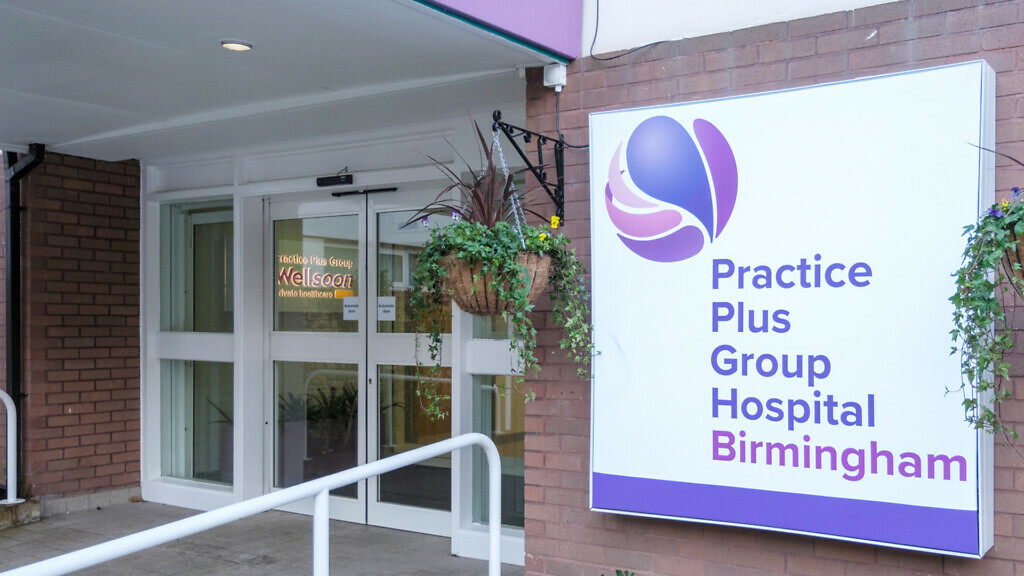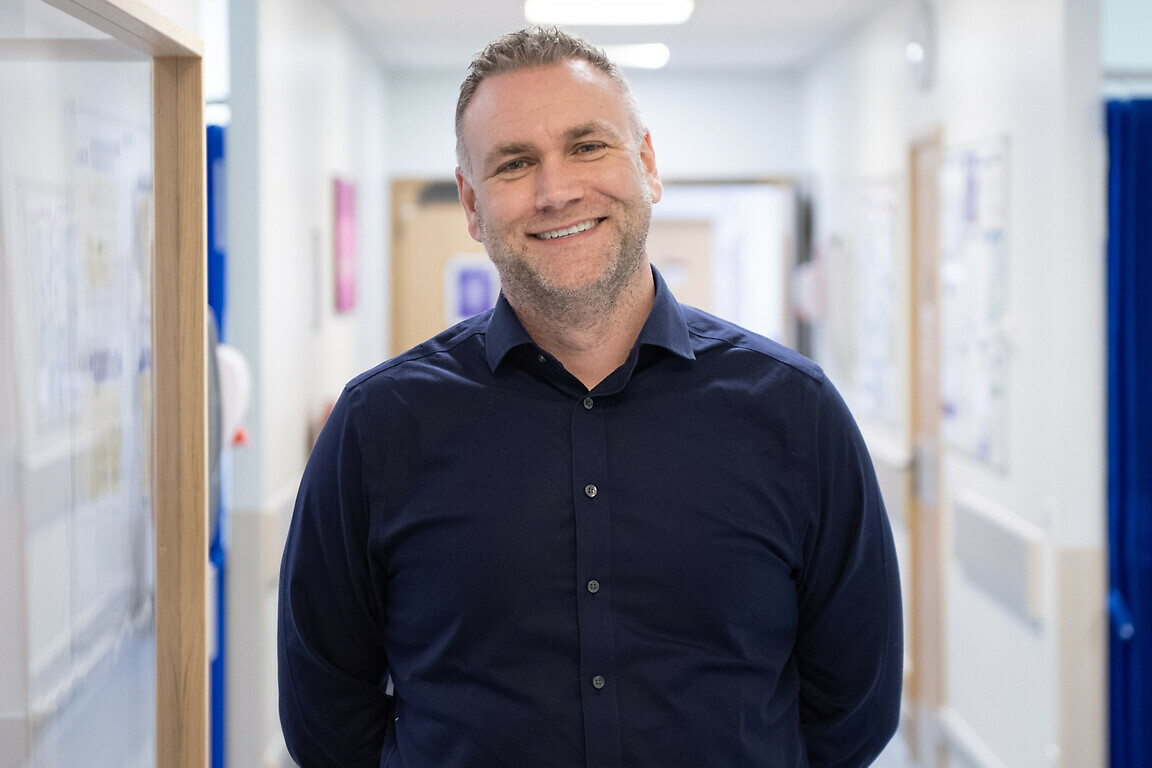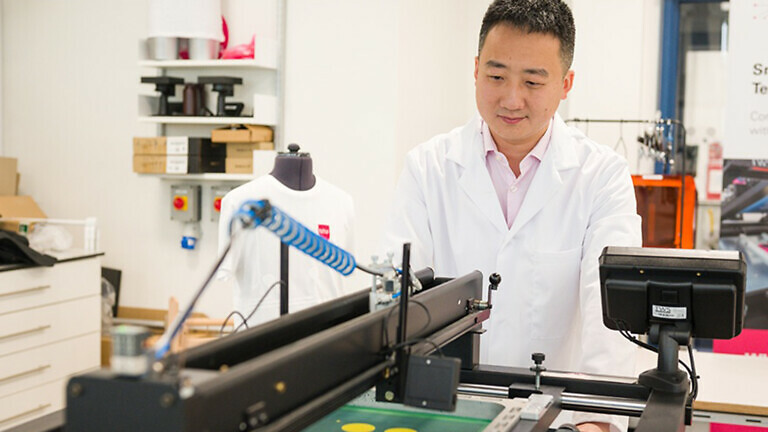In his first interview, the new chief executive of Practice Plus Group talks about his priorities now that part of the group has been acquired by Narayana Health.
After 17 years with Practice Plus Group, Ross Dowsett has stepped up as chief executive at a pivotal moment for one of the UK’s largest independent healthcare providers. The company’s secondary care business, which delivers both NHS and self-pay services across hospitals and surgical centres, has just been acquired by Indian healthcare giant Narayana Health. In his first interview since becoming chief executive, Dowsett talks to Healthcare Today about what his priorities are going to be, what expansion will look like and the rise in demand of the self-pay market.
You’ve been with Practice Plus Group for 17 years and have now taken over as chief executive. What are your immediate priorities?
We are in the process of separating out the business, with a number of post-closure activities still to complete. Much of our focus at the moment is on ensuring that all regulatory and statutory requirements are fully addressed, and there is a great deal of work happening behind the scenes to make sure everything is covered.
Our first priority is to ensure that we remain safe and compliant. Once that foundation is secure, the focus shifts to preparing for the next phase: shaping our strategy for the future and putting in place the plans that will allow us to grow the business in the way we want to.
“We have always been a predominantly NHS-focused organisation.”
What does Narayana Health’s acquisition mean in practical terms for Practice Plus Group – for patients, staff and the NHS?
I’ll start with the NHS side of things. We have always been, and will continue to be, a predominantly NHS-focused organisation.
In terms of what Narayana Health brings to us, there’s a great deal of shared DNA between the two organisations. We’ve grown up in the NHS world, operating within a tariff-based system for a long time, which means we’ve had to be incredibly efficient and productive to make ends meet. That efficiency allows us to generate enough surplus to reinvest – both in our staff and in our facilities, ensuring they remain modern and fit for purpose while maintaining quality.
Narayana Health brings valuable expertise in this regard. Their model in India, particularly in cardiac care, has achieved impressive results in making high-quality treatment more affordable. There’s a strong alignment in philosophy there. Where we see them really helping to accelerate our progress is on the IT side. They’ve spent seven years developing their own end-to-end system. It’s an exceptional piece of software.
That depth of technological know-how, combined with their operational experience, will be invaluable as we look to expand into other specialities and scale what we do.
What aspects of the organisation do you most want to preserve as it begins this new chapter?
Of course, we want to preserve everything that has made us the business we are today.
A big part of that continuity comes from the senior team, who have been leading the organisation for many years. That entire team will remain in place to continue driving our growth. So, I don’t anticipate any major cultural change. If anything, what Narayana Health brings is additive – it strengthens us culturally. It gives us the confidence and the capacity to deliver on the ambitions we already have. I see this as an alignment of values, rather than a shift – a partnership that allows us to do more of what we do best.

Narayana Health has a reputation for delivering high-quality healthcare at scale in India. What parts of that model might translate to the UK system?
They operate in some specialities that we currently don’t. Those conversations have been very sensible and measured, centred on the importance of not doing too much too quickly. It’s vital in situations like this that we build solid foundations before expanding.
We don’t want to rush into offering new specialities that we don’t yet have the expertise or infrastructure to deliver properly. That wouldn’t be the right approach. Instead, we want to ensure that when we do move into those areas, we do so with full knowledge, careful preparation, and the complete backing of our new owners.
Narayana Health doesn’t do anything by halves – they’re very methodical and deliberate in how they operate. Once they make a decision, they commit to it fully and see it through. That kind of disciplined, thoughtful approach gives me a great deal of confidence about how we’ll move forward together.
Acquisition normally means expansion. Do you expect Narayana Health’s investment to accelerate growth?
Expansion is a significant part of our plan. If you look at our current footprint across the UK, we’re largely concentrated in the South and central areas. We don’t yet have a presence in the North West, the North East or the East of England – those are definite gaps for us. Within our longer-term strategy, site expansion features prominently.
We’ve had discussions about whether we want to become more of a city-centre operator, but that’s not really who we are. If you look at our existing sites, many of our most successful ones are outside city centres – locations that offer great transport access and are much easier for patients to reach.
Accessibility is crucial. Patients value practical things like free parking, which can be a real problem at many NHS trusts. So, when we look at potential new sites, a major consideration is making sure patients can get to us easily, whether by car or public transport.
“If we want to continue to grow in the way we plan to, private work has to be a significant part of that.”
How do you ensure that the integration enhances rather than dilutes PPG’s existing relationships with the NHS and local health systems?
We’ve been operating for more than 20 years now, and in that time we’ve built strong, well-established relationships with commissioners. They remain a core part of what we do.
There is an aspiration to grow our private work – but always alongside our NHS work, not instead of it. When we launched our Wellsoon brand, for instance, it didn’t disrupt our NHS operations at all. In fact, our NHS activity has continued to grow in parallel with our expansion into the private sector. None of that diversification has distracted us; we’ve been able to balance both successfully.
How do you balance NHS partnership work with the growth of your self-pay and private patient business?
Most people go into clinical professions because they want to help patients, and the NHS is, quite rightly, seen as a fantastic institution.
There are, however, a couple of important points to consider. If we want to continue to grow in the way we plan to, private work has to be a significant part of that. It gives us a margin that allows us to do the things we want to do. It enables us to reinvest – particularly in our staff.
Over the past five to seven years, we’ve worked hard to enhance our staff offering. Part of the reason we’ve been able to do that is because we’ve diversified into new markets. For us, it’s a virtuous circle: the additional income from private work allows us to reinvest in our people and in improving patient care.
It also works the other way around. When we design and build new sites with private patients in mind – whether PMI or self-pay – the facilities look and feel fantastic. But because around 95% of our work is still NHS-related, NHS patients benefit from those same state-of-the-art environments.
“We are mindful of the financial pressures facing the NHS, but patients need to be seen and cared for.”
In January, the prime minister made clear his priorities to work with the private sector this year. How should the independent sector capacity be used?
We welcome all the statements that Keir Starmer has made, and it is encouraging to see him back up those statements. Behind the scenes, we have ongoing conversations about how we can better utilise capacity in the independent sector. It is clear that the sector does have additional capacity that could support NHS waiting list initiatives.
We hope that with the upcoming budget, more funding will flow into these areas. We are mindful of the financial pressures facing the NHS, but what must not be lost sight of is that patients need to be seen and cared for. The independent sector has the capacity to help achieve those aims and begin to reduce waiting times.
Where do you see Practice Plus Group in three years’ time under this new ownership?
We want to take the best elements that Narayana Health can bring and apply them judiciously to our business. This will not be a sweeping or indiscriminate approach – we will carefully assess what works for our organisation and adapt those practices accordingly. We have spent a great deal of time with the owners, who are genuinely sensible and methodical people. They are not trying to rush decisions, but they do understand the importance of acting efficiently and recognising the bandwidth required for sustainable growth.
In a few years, our goal is to have a couple of outstanding new sites operational and to expand our private medical insurance (PMI) offering, which we see as a significant opportunity. We are excited to work closely in this area. While we are different from competitors in both approach and ethos, we aim to provide a patient experience that clearly demonstrates good value in this country. Patients should understand what they are receiving and have a transparent choice – whether that is through our services or, of course, through the NHS.



